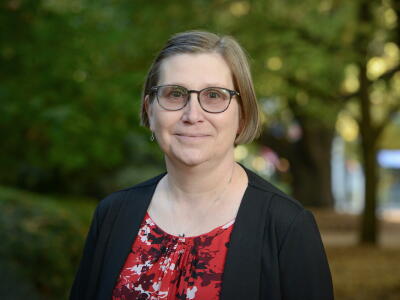Professor Tim Senden: fueling research with active infrastructure
By: Kathryn Vukovljak
Posted on
Professor Tim Senden sees research infrastructure as the basis of discovery and impact.
As The Australian National University’s (ANU) new Pro Vice-Chancellor (Research Infrastructure and Entities), he brings a passion for how the ANU can better leverage its existing resources and expertise.
Senden says the best research happens when experts come together around what he calls “instrumentalities” – the collections, databases and facilities that enable us to explore the questions that matter.
“In combination these instrumentalities are a key ingredient to create impact. We have a huge, embodied investment already here at ANU in our people and facilities – we just need to ensure they continue to fuel research in new ways,” he says.
“I don’t see challenges, I see opportunities to elevate these capabilities and attract new forms of support, from philanthropy, industry and government alliances where our research leadership can make a real difference.
Senden has spent much of his 30 years at ANU focused on industry engagement, being part of teams that have established major partnerships including collaborations around nuclear stewardship, and the Rio Tinto relationship that brought together social scientists and STEM researchers around responsible technology development.
Throughout his career working at the interface of chemistry and physics, and later across multiple disciplines, Senden has long championed “active collections and facilities” – making sure research materials and facilities are engaged with ongoing scholarly work rather than becoming static repositories, or under-used equipment.
“A collection or instrument that’s not part of an active research program risks being lost, because specialist maintenance or curation goes by the wayside,” he says.
“So it’s important to keep things active. And that means they have to remain significant in the context that they're used. Significance is a concept used in collections, but it usefully translates across all these different instrumentalities."
Director of the Research School of Physics for the past decade, Senden’s research background in physical chemistry, studying molecular forces at the nanoscale, has informed his understanding of how different components of research work together.
His expertise in materials analysis has led to unexpected collaborations across several fields, from palaeontology to nuclear medicine. He loves transdisciplinary engagements and remembers fondly a collaboration with colleagues from the SoAD glass workshop and the Classics Museum when they discovered how the Romans mass-produced a type of cameo glass that had puzzled historians for centuries.
Inspired by his predecessor Professor Ute Roessner, he says he’s committed to continuing her inclusive leadership and focusing on the shared identity that links research across disciplines.
When he’s not facilitating collaboration across campus, Senden enjoys tending his collection of rare carnivorous plants.
“I love how these plants have evolved unique strategies for getting nutrients in highly constrained niches where others struggle. Evolution plays the long game, that appeals to me,” he says.
It’s a mindset he’ll bring to nurturing research potential across the University’s facilities, libraries, institutes, centres and collections.
“I’m here to facilitate opportunities to do great research,” he says.
“If I can support the instrumentalities at ANU to further develop their own unique opportunities for impact, then that’ll build on a good foundation and improve our combined research capability.”
Professor Senden will formally commence as Pro Vice-Chancellor (RIE) on Friday, 4 July.
You may also like
Plant scientist Professor Ute Roessner to join ANU
Professor Ute Roessner AM will join the new Research Initiatives and Infrastructure (RII) team in the R&I portfolio as Academic Director on March 7.
ANU physicist making waves in space joins top global society
A theoretical physicist from The Australian National University (ANU) whose pioneering work has fundamentally altered our understanding of the deepest and darkest parts of the Universe and space-time…
Nanda's badge of pride in Australian nuclear physics
Professor Nanda Dasgupta feels the word nuclear could do with a rebrand.


